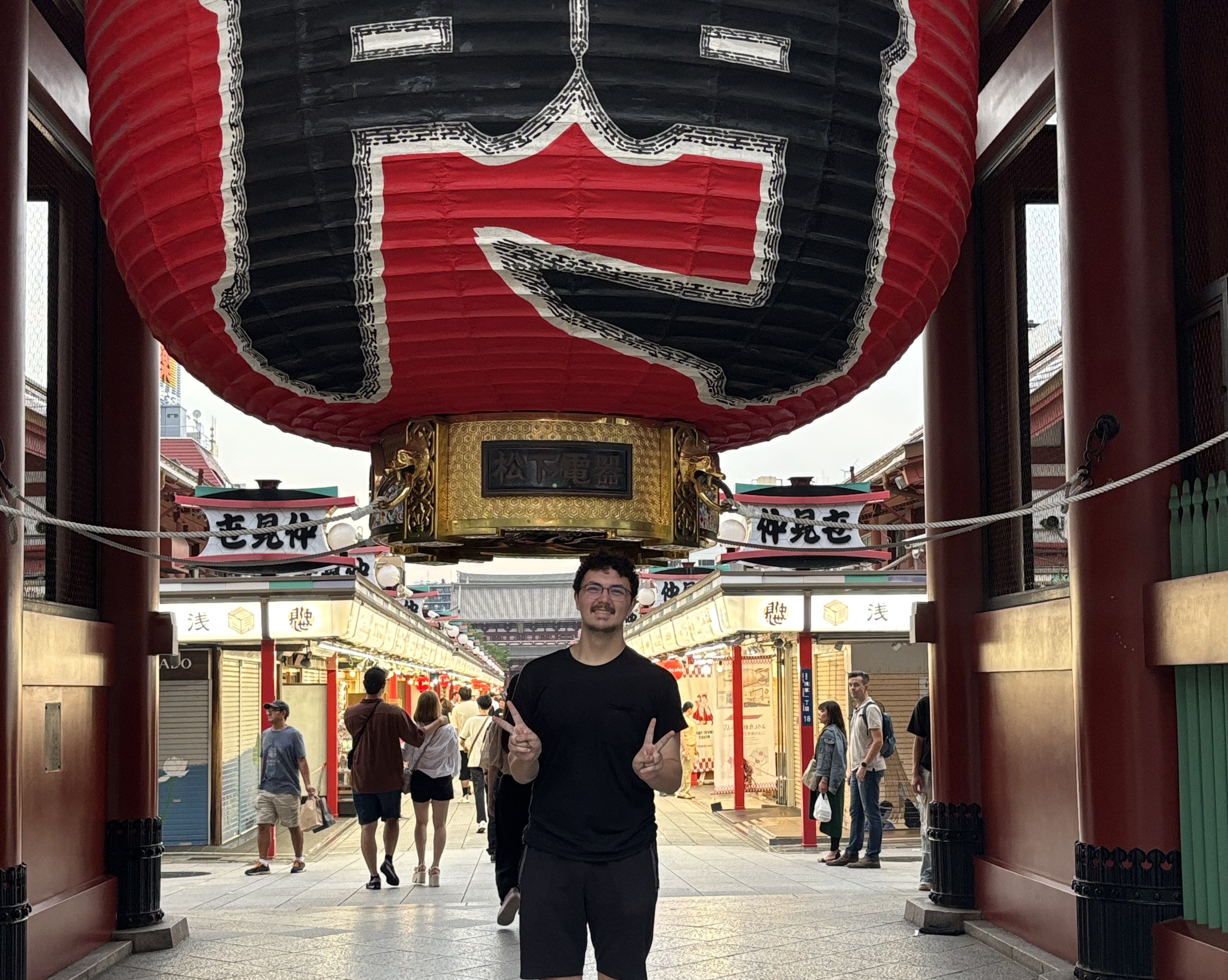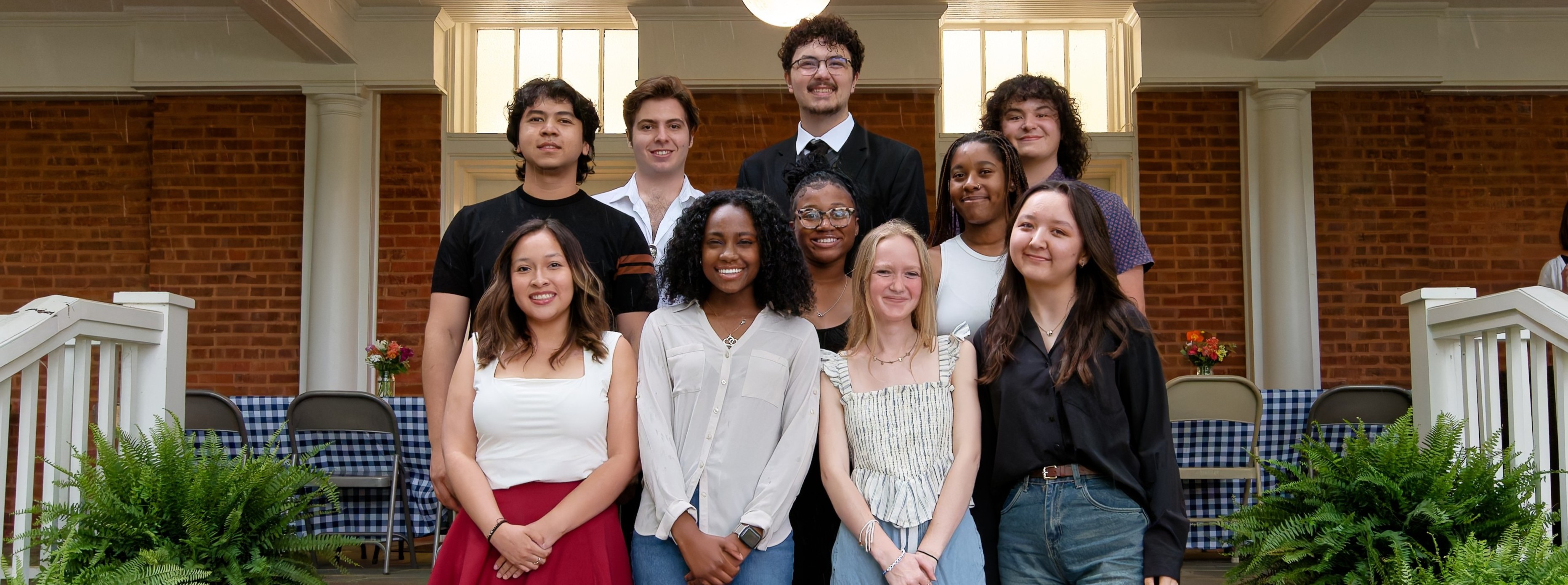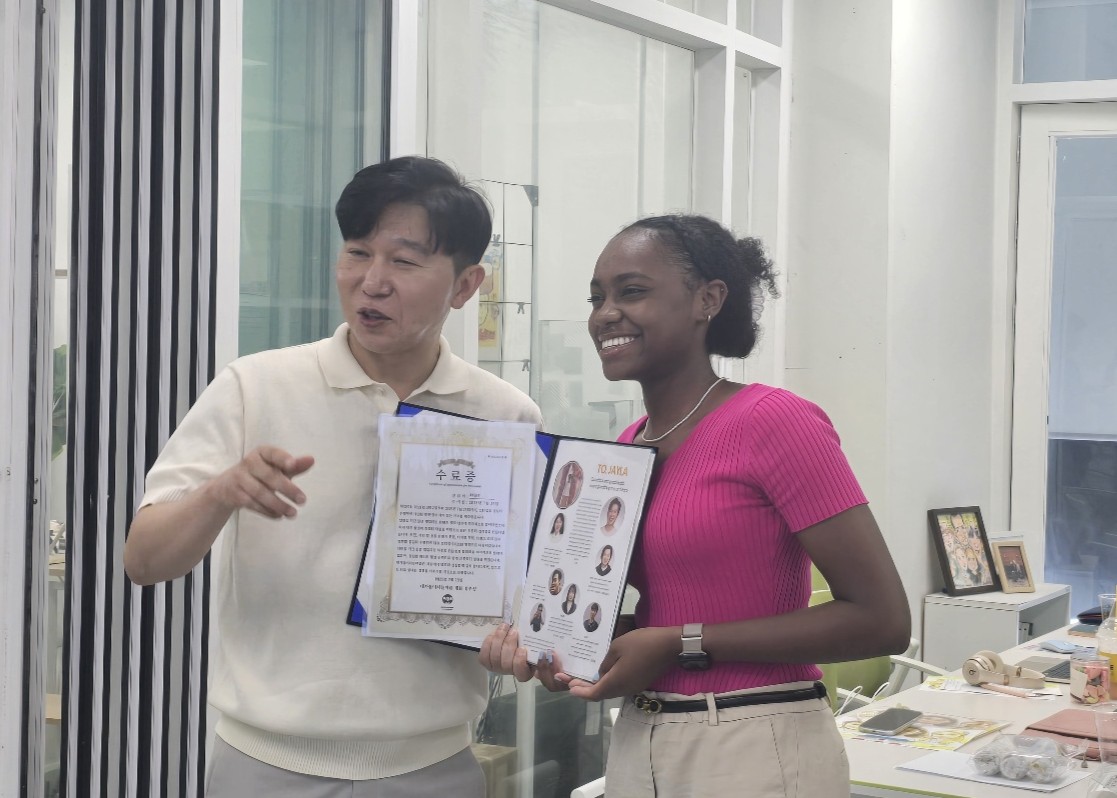
 - Copy.JPG)
My time in Indonesia taught me that no title or position carries weight unless it´s paired with respect and care for the people one leads. I also learned the importance of stepping into new experiences even when I was not sure what to expect.
 - Copy - Copy.jpg)
Growth doesn’t happen when things are familiar. It happens when you land in a new country, take the wrong taxi holding the currency you haven’t ever seen in your life and still figure out your way.

To complete an internship abroad is to develop skills born of necessity and forged in adversity. The experience of being able to live in Japan is an unforgettable experience that has undoubtedly changed my understanding of what it means to be a ‘global citizen.’
UM Experiential Learning in Eastern Asia is supported by a grant from the Freeman Foundation, of Honolulu, Hawaii, by the University of Mississippi Office of Global Engagement, and by the applicants' respective schools to intern in an East Asian country during summer 2026. Grantees will receive up to $9,000 to advance their career goals and gain professional experience by interning full-time for at least eight weeks.
Founded in 1994 by the estate of AIG cofounder Mansfield Freeman, the Freeman Foundation seeks to strengthen U.S.–East Asia relations by promoting cultural understanding, mutual exchange, and appreciation of institutions on both sides. Freeman grantees advance this mission by gaining real-world work experience in an East Asian country, bringing Mississippi and the United States to their host communities and returning with deeper knowledge to share at home.
Interested students may direct questions to:
Need help on your application? Come to an application session! These provide an opportunity for applicants to ask questions, receive pre-submission feedback, and think about their goals in the program.
Tuesday, March 3, 11:00 to 12:00 in Croft 305
Wednesday, March 4, 4:00 to 5:00 in Croft 305
Thursday, March 5, 11:00 to 12:00 in Croft 305
The program focuses on sending students to countries that are at the heart of the University of Mississippi's and the Croft Institute's long-standing engagement with East Asia: Taiwan, Japan, and South Korea.
Internships in other parts of East Asia can also be supported, and students are encouraged to explore all possibilities within the broader region.
As of summer 2024, students may not complete internships in the People's Republic of China or Hong Kong.

UM Experiential Learning in Eastern Asia funds internships, not study abroad programs. Grantees must intern full-time, at least 20 hours per week, for a minimum of eight weeks. Grantees are not permitted to take classes during the workday, such as language or cultural immersion classes, although they may take classes in their free time. The internship must provide a meaningful work experience and should contribute to the professional and personal growth of the intern. Ideally, that means that a significant portion of the internship will be devoted to a long-term project over the eight weeks.
The internships may be paid or unpaid Grantees will receive the full grant value amount regardless. Grantees may secure their internship by tapping the Ole Miss alumni base and their personal networks, or may elect to use an internship provider.

The application for UM Experiential Learning in Eastern Asia consists of the following components which may be downloaded below:
Applications will not be assessed until all components are submitted. Incomplete or late applications will not be reviewed.
Applications will be judged based on:
Each grantee will be awarded up to $9,000. The application committee will accept applications that exceed the $9,000 grant limit, and grant recipients will be responsible for the additional cost. The application committee will not assess financial need. Proposals with budgets below or above $9,000 are not more or less likely to succeed, so long as they are well-researched and feasible. Please note that successful grantees are not necessarily guaranteed $9,000, and actual grant award amount may vary.
Students are strongly encouraged to contact Mr. Chase Young (freemangrant@olemiss.edu) to express their desire to apply and discuss the process.
Submit all completed materials via email to freemangrant@olemiss.edu.
Please name the documents according to the following format:
FreemanApplicationFirstNameLastName
FreemanCertificationFirstNameLastName
FreemanRecommendationFirstNameLastName
FreemanBudgetFirstNameLastName
FreemanResumeFirstNameLastName
FreemanTranscriptFirstNameLastName
Applicants are encouraged to use the #umabroadwithfreeman on all social media platforms and share your photos through tagging the UMFreemangrant.
These photos will be used to advertise for the UM Freeman Grant as well as posted on the Croft Institute for International's platforms.
If you do not want your photos shared, please let Chase Young know before going abroad.

Jayla LaGarde in South Korea

Adam Maatallah in South Korea
Applicants must agree to give back to the University during the semester after their return.
In Fall 2026, each Freeman grantee will be required to submit a two-page reflection that details their professional and personal growth while interning abroad. Grantees must also submit photos and complete a survey about their experience. Grantees will be required to attend an information session about the University of Mississippi Eastern Asian Internship Program in which they speak about their experience and answer questions. Finally, grantees will be expected to write a thank-you letter to the Freeman Foundation.
To receive all allocated grant funds, grantees must submit all requested documentation by the required deadlines and comply with all University of Mississippi regulations related to grant disbursement and international travel.
No! UM Experiential learning in Eastern Asia does not fund study abroad programs, and you may not use a grant to pay for academic programs.
The grants are primarily funded by the Freeman Foundation of Honolulu, HI. The grants are also funded by the Office of Global Engagement and the respective schools of the grantees.
The founder of the Freeman Foundation, Mansfield Freeman, was a professor of Chinese philosophy and resided in China for portions of his life. The company that was the precursor to AIG was cofounded by him in Shanghai. The mission statement of the Freeman Foundation is "to strengthen the bonds of friendship between this country and those of the Far East".
The internship must last a minimum of eight weeks for at least twenty hours per week. Internships of a longer duration are encouraged. Students may not intern for longer hours over a shorter period of weeks (for example, four weeks at forty hours per week).
Freeman grantees must be full-time, degree-seeking undergraduate students at the University of Mississippi in good academic standing in fall 2025, spring 2026, and fall 2026. This means that students who will graduate in spring 2026 are not eligible to receive grants, nor are students who will be enrolled at the University as graduate students.
Yes. International students may receive a grant, so long as they do not use it to intern in their country of origin.
There are no language requirements to receive a grant. There are various ways students who only speak English can be successful interns in Eastern Asia. Some countries have significant English speaking populations, and some organizations seek fluent English speakers. Research your options. You should consider how comfortable you are living in a foreign country and not speaking the dominant language before applying for a grant.
Yes! We are deliberately seeking students from a diversity of fields of study to award grants. The key is to make a strong case for why you should intern in Eastern Asia.